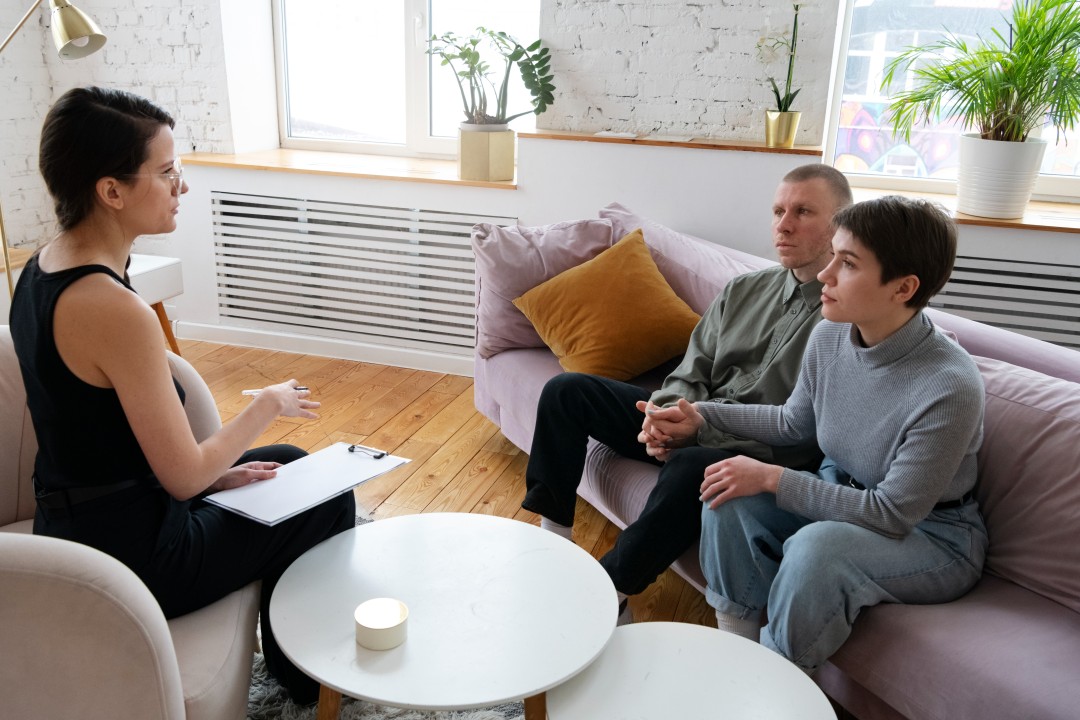Understanding the Role of a Relationship Therapist
A relationship therapist is a specialised mental health professional who focuses on improving interpersonal dynamics between individuals, whether they are couples, family members, or friends. Their role encompasses a wide range of responsibilities, including facilitating communication, resolving conflicts, and fostering emotional connections. Unlike marriage counsellors or general therapists, relationship therapists concentrate specifically on the nuances of interpersonal relationships and dynamics. They employ various therapeutic techniques tailored to address the unique challenges and goals of their clients. Relationship therapists work with individuals to develop strategies for effective communication and emotional understanding. Their approach is often collaborative, aiming to empower clients to resolve issues and enhance their relationships. By addressing underlying issues and improving interaction patterns, relationship therapists help clients build stronger, healthier connections.
Why Seek Help from a Relationship Therapist?
Seeking assistance from a relationship therapist can be a proactive step towards resolving common challenges faced in relationships. Many people turn to therapy when experiencing persistent conflicts, communication breakdowns, or emotional disconnection. Professional guidance is valuable in navigating these difficulties as therapists offer structured approaches to address and resolve underlying issues. Therapy provides a neutral space where both parties can express their concerns and feelings openly without judgement. It can also help individuals understand their own behavioural patterns and how they impact their relationships. Engaging with a therapist offers the chance to gain new perspectives and develop strategies for improvement. This professional support is crucial for fostering a healthier relationship dynamic and achieving greater satisfaction in personal interactions.
The Process of Relationship Therapy
The journey through relationship therapy typically begins with an initial assessment where the therapist gathers information about the relationship dynamics, individual concerns, and goals. This phase helps in creating a tailored therapeutic plan that addresses specific issues and aspirations. Therapy sessions usually involve exploring communication styles, identifying conflict triggers, and developing strategies for effective interaction. Various techniques, such as active listening, cognitive-behavioural strategies, and emotional regulation exercises, are employed to enhance relationship skills. The therapist works closely with clients to implement these techniques and adjust approaches based on ongoing feedback. This iterative process ensures that therapy remains relevant and effective as clients progress. Building a trusting and open relationship with the therapist is essential for successful outcomes and meaningful growth.
What to Expect During Therapy Sessions
During therapy sessions, clients can expect a structured approach where each session is focused on specific topics or issues. Typically, a session will begin with a review of progress since the last meeting, followed by addressing new concerns or challenges. The therapist facilitates discussions, encouraging clients to express their thoughts and emotions constructively. Clients may engage in exercises or role-plays designed to practice new skills and perspectives. The therapist’s role is to provide guidance, feedback, and support while respecting each individual’s pace and comfort level. Confidentiality is a cornerstone of the therapeutic relationship, ensuring that clients feel safe to share openly. This environment fosters a collaborative effort towards achieving the therapeutic goals set at the outset.
How Relationship Therapy Can Transform Relationships
Relationship therapy has the potential to significantly enhance interpersonal connections by focusing on several key areas. Improved communication skills are often one of the most immediate benefits, allowing individuals to express their needs and feelings more effectively. This leads to greater emotional intimacy and a deeper understanding between partners. Therapy also provides tools for managing and resolving conflicts in a way that maintains respect and empathy. As clients develop these skills, they often notice a reduction in misunderstandings and increased satisfaction in their relationships. By addressing and resolving underlying issues, therapy promotes long-term relationship health and stability. The insights gained from therapy can also contribute to personal growth, leading to more fulfilling and balanced interactions. This comprehensive approach ensures that the improvements achieved in therapy extend beyond the sessions, positively impacting daily life.
Choosing the Right Relationship Therapist
Selecting a relationship therapist is a crucial step towards achieving the desired outcomes in therapy. When choosing a therapist, consider their qualifications, experience, and therapeutic approach to ensure they align with your needs and preferences. It’s beneficial to look for a therapist with a proven track record in dealing with issues similar to yours and one whose approach resonates with your values. Many therapists offer initial consultations, which can provide insight into their style and whether it fits with your expectations. It’s important to feel comfortable and understood by your therapist, as this relationship greatly influences the effectiveness of the therapy. Evaluating these factors carefully will help you find a therapist who can provide the support and guidance necessary for meaningful progress. Taking the time to choose the right therapist is an investment in the health and future of your relationships.
The Long-Term Benefits of Relationship Therapy
The benefits of relationship therapy extend well beyond the therapy sessions themselves. Improved communication and conflict resolution skills often result in more harmonious and satisfying relationships. Clients frequently experience increased self-awareness and personal growth, which positively affects their interactions with others. Therapy equips individuals with strategies to handle future challenges and maintain healthy relationship dynamics. By addressing and resolving core issues, therapy fosters a more resilient and supportive relationship environment. These long-term benefits contribute to a higher quality of life, with healthier and more fulfilling personal connections. Maintaining the progress achieved in therapy requires ongoing effort and application of the skills learned, but the rewards are well worth the commitment. Overall, relationship therapy provides a foundation for lasting improvements in both personal and relational well-being.

